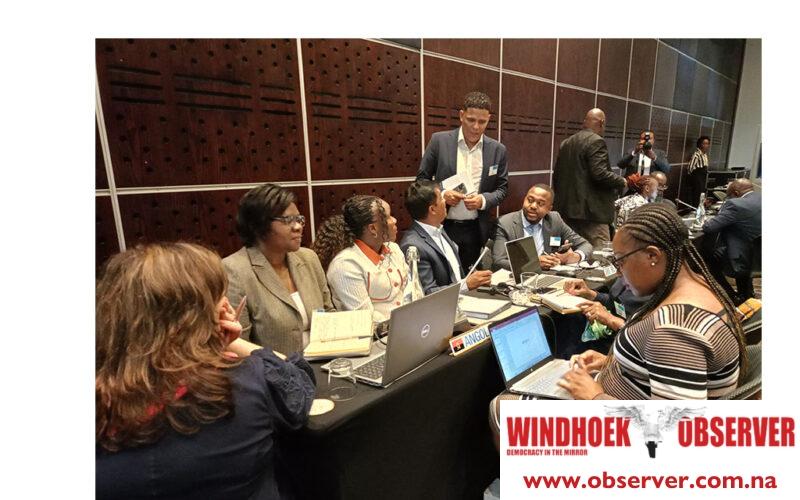Moses Magadza
The SADC Parliamentary Forum’s SIDA-funded Sexual and Reproductive Health and Rights (SRHR), HIV, and AIDS Governance Project has convened a budget analysis retreat for researchers and staff of national parliaments to strengthen budgetary practices for SRHR advocacy.
The retreat began in Johannesburg on September 28 with the secretary general of the SADC Parliamentary Forum, Boemo Sekgoma, underscoring the need for rigorous budget planning in SRHR.
“Without a budget, nothing can be achieved,” Sekgoma said when she officially opened the retreat, highlighting the role financial resources play in implementing essential health initiatives.
She highlighted the interconnectedness of budget allocations and successful SRHR outcomes.
“If an item is not budgeted for, then all processes around its use will not occur,” she said.
Sekgoma expressed gratitude to Toffa Munashe, a former SRHR researcher under Zimbabwe’s parliament, whose dedication and innovative approach had significantly impacted the SIDA-funded SRHR, HIV, and AIDS Governance Project.
She said Toffa had secured two MoUs for the forum and had served with distinction on the Social Development and Special Programmes Committee (HSDP).
“That is an officer and a gentleman,” she noted.
Sekgoma said that for the first time, the retreat had brought together SRHR researchers and project officers under one roof to engage in training.
“This is the very first occasion that we have been able to gather SRHR researchers from national parliaments under the flagship of a single event,” Sekgoma said.
She expressed optimism that participants would apply the skills they would acquire during the two-day event.
Sekgoma noted that the Human and Social Development and Special Programmes Committee’s previous discussions frequently overlooked budget-related parliamentary functions.
“Public health financing and how governments budget for health are crucial issues that we must address,” Sekgoma said.
She said inadequate budgeting would lead to failure in combating gender-based violence and implementing comprehensive sex education.
Sekgoma urged participants to engage with budget committee chairpersons and members.
“I am confident that you will become brilliant emissaries of SRHR budget planning,” she said.
The retreat focuses on budget analysis for Sexual and Reproductive Health and Rights (SRHR) researchers and seeks to strengthen the capacity of lawmakers and researchers in the SADC region.
According to the Bretton Woods institutions, including the International Monetary Fund (IMF) and World Bank, effectively analysing state budgets is essential for pinpointing gaps in financial provisions and ensuring that they adequately reflect citizen needs.
The retreat will focus on identifying gaps within national budgets and how they correspond with the governments’ commitments to health and gender equality, as outlined in the Sustainable Development Goals (SDGs) in the context of SRHR.
The retreat underscores the significance of fiscal policy in enhancing universal access to SRHR services and holding governments accountable for financial allocations.
One of the main objectives of the retreat is to enhance the expertise of SRHR researchers, allowing them to support Members of Parliament (MPs) in budget committees and oversight functions.
The sessions will include interactive discussions led by budget officers from National Parliaments in Zambia, Zimbabwe, and South Africa, aiming to promote peer learning and share best practices for integrating SRHR into budgetary processes.
Key outcomes expected from the retreat include fostering a deeper understanding of the state budget adoption process among participants, advancing interconnected objectives under the SRHR Project, and ensuring that domestic budgets remain responsive to SRHR and climate accountability.




